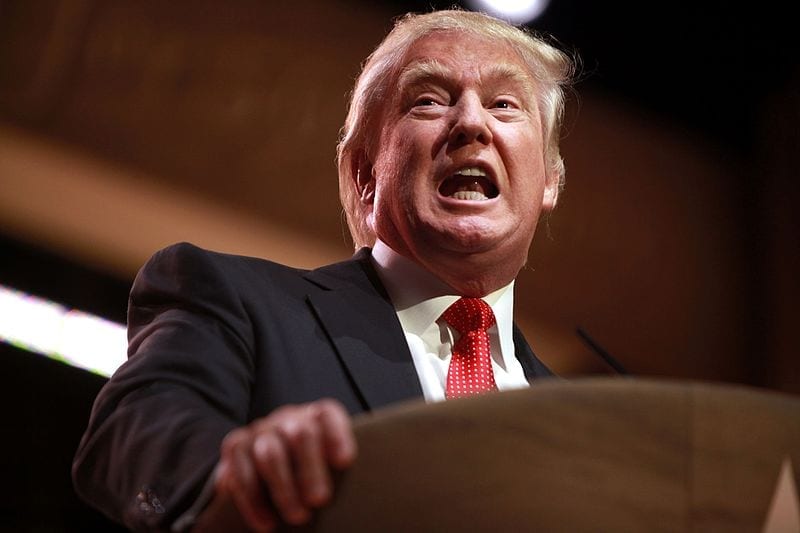The New York Times suggested that Trump’s team is trying to censor the media.
President Donald Trump’s 2020 re-election campaign is charging ahead with a libel lawsuit against The New York Times.
The campaign, says CNN, claims the Times “knowingly published false and defamatory statements” in a March 2019 opinion piece.
Of course, the Times, alongside other media outlets, responded to the claim with derision. A spokesperson for the paper said the Trump campaign, in attacking an opinion piece, is effectively trying to censor criticism of its platform as well as the sitting president.
“The Trump campaign has turned to the courts to try to punish an opinion writer for having an opinion they find unacceptable,” the Times said in a statement.
“Fortunately,” an NYT spokesperson added, “the law protects the right of Americans to express their judgments and conclusions, especially about events of public importance. We look forward to vindicating that right in this case.”
The opinion piece in question, writes CNN, was written by former Times executive editor Max Frankel. In his article, entitled “The Real Trump-Russia Quid Pro Quo,” Frankel argued that “there was no need for detailed electoral collusion between the Trump campaign and Vladimir Putin’s oligarchy.”

Frankel, CNN recounts, said Trump and Putin shared an overarching goal: “the quid of help in the campaign against Hillary Clinton for the quo of a new pro-Russia foreign policy, starting with relief from the Obama administration’s burdensome economic sanctions.”
But the Trump campaign’s lawsuit accuses Frankel and the New York Times of being “well aware” that the claims weren’t true.
While Frankel’s piece was released shortly before the Mueller report, the Trump campaign alleges that the New York Times knew Mueller’s investigation would likely vindicate Trump—or, at least, not accuse him of personally encouraging or otherwise partaking in collusion.
“Once the Mueller report was released, The Times knew that any claims of conspiracy would not be credible,” the lawsuit states. “Thus, by publishing the Defamatory Article in March 2019, The Times sought to damage the Campaign before the Mueller Report would be released debunking the conspiracy claims.”
As late as last week, Trump himself was blasting the Times for the March 2019 op-ed, saying the paper did “a bad thing.”
“It’s beyond an opinion,” Trump said in late February. “That’s not an opinion. That’s something much more than an opinion.”
“They did a bad thing,” Trump added. “And there’ll be more coming.”
However, numerous civil liberties groups and media outlets were quick to side with the Times, observing that Frankel’s opinion was reasonably grounded in publicly-available information.
“A publisher cannot be held liable for commentary based on public facts,” said American Civil Liberties Union attorney Brain Hauss.
University of Virginia law professor Frederick Schauer also told the Times that it’s “virtually impossible” for the campaign to prove, in court, that it knew the story “was false before publishing, or had actual suspicion of falsity and went ahead anyway.”
Sources
Trump campaign files libel lawsuit against The New York Times over 2019 opinion piece on Russia
Trump Campaign Sues New York Times Over 2019 Opinion Article


Join the conversation!